You are here
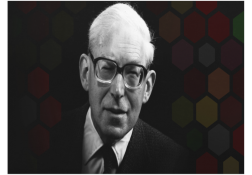 November 16 2024
How J. I. Packer Married Theological Study and Spirituality
November 16 2024
How J. I. Packer Married Theological Study and Spirituality
Kyle Strobel is also encouraged that a new generation is "awakening to the very questions that helped start this conversation 45 years ago." Strobel serves as a professor in the Institute for Spiritual Formation at Talbot School of Theology. He argues, "What is needed today is not merely a discussion of practices, but a real spiritual theology fueled by a distinctively Protestant and evangelical vision of the Christian life."
Read more November 13 2024
TRANSUBSTANTIATION...NOT
November 13 2024
TRANSUBSTANTIATION...NOT
Anglicans believe that Christ is fully offered in the sacrament of Holy Communion ("effectual signs of grace"); it's far more than a memorial or symbolic meal. We understand that real presence is his spiritual presence spiritually experienced in the believer's heart when they receive Christ again by faith with thanksgiving.
Read more November 06 2024
THE NEW DIVIDE IN GLOBAL ANGLICANISM
November 06 2024
THE NEW DIVIDE IN GLOBAL ANGLICANISM
Unlike many evangelicals, Anglicans have always said that tradition should play a role in their interpretation of the Bible. But the nature of that role is now dividing global Anglicans in ways that, ironically, threaten to return otherwise orthodox Anglicans to the liberal Protestant camp they have sought to escape.
Read more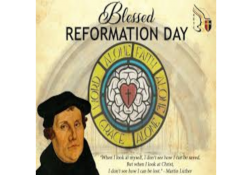 November 01 2024
REFORMATION SUNDAY
November 01 2024
REFORMATION SUNDAY
Hopefully he encouraged you to tell your people how these essentials are at the very heart of our sacramental theology and Prayer Book worship. I hope that he mentioned to you in his admonition to commemorate the Reformation this Sunday that the reformers were willing to live and die for the evangelical essentials of Holy Scripture as stated in the historic Anglican formularies: the two books of Homilies, the Thirty-nine Articles of Religion, and the 1662 Book of Common Prayer.
Read more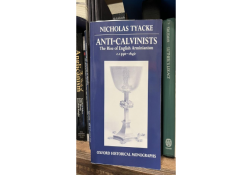 October 23 2024
"Anglicans are not Arminian" -- Jacobus Arminius
October 23 2024
"Anglicans are not Arminian" -- Jacobus Arminius
I've searched for ways to describe how the Church of England started with a firm commitment to the Reformation tradition (Luther on faith and grace, and Calvin before Calvinism on the sacraments: the obvious message of the Anglican formularies), and then suddenly turned after Edward VI, Elizabeth I, and James 1 to Arminianism (often called "Pelagian" at the time: see Article IX). By 1630s-40s the church turned anti-Calvinist and has remained largely that ever since.
Read more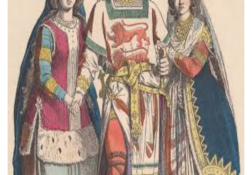 October 09 2024
A Christian Response to Polygamy, Incest, and Pedophilia
October 09 2024
A Christian Response to Polygamy, Incest, and Pedophilia
Each of these sins can be argued directly from natural law, yet there are no squabbles between general and special revelation. Christians must be able to defend the sanctity of monogamous, male-female marriage and the beauty of chastity against the pagan practices of the modern age, so what follows is a biblical and theological response to polygamy, pedophilia, and incest.
Polygamy (Nonmonogamous Partnerships)
Read more September 11 2024
The Historical Evolution of the Anglican Church in Nigeria
September 11 2024
The Historical Evolution of the Anglican Church in Nigeria
CON has non -diocesan bishoprics such as Bishop Theologian (who supervises theological education and the seminaries, and the Bishop for the Normadic Mission.
The church has a counterpart of the CMS, in the indigenous Church of Nigeria Missionary Society (CNMS).
Most Rev. Henry Ndukuba, stated as follows, in his Foreword to the book- 180 years of the Anglican Church in Nigeria (1842-2022):
Read more September 10 2024
What the Apostles' Creed denies
September 10 2024
What the Apostles' Creed denies
The Apostles' Creed's purpose is not to replace the Bible, nor to be the only creed for the church, nor to reduce Christian truth to its statements. Rather, it summarizes biblical doctrine and is meant to be recited corporately by followers of Jesus. Its affirmations are necessarily part of Christian doctrine, and all three branches of Christianity affirm it (although not with the same interpretation of every aspect).
Read more September 08 2024
THE SECRET OF THE KINGDOM
September 08 2024
THE SECRET OF THE KINGDOM
At the commencement of a new phase of parish ministry people are hoping for a great deal of entertainment. When the non-Anglican, Congregational minister R.W. Dale was assigned to his latest post colleagues joked to him that his strong doctrinal emphasis would not warm his new flock to his pastoral approach.
Read more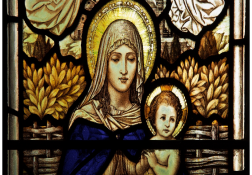 September 05 2024
Mariology and the New Testament: A Factual List
September 05 2024
Mariology and the New Testament: A Factual List
2 The number of independent Jesus sayings in the NT discouraging his followers from giving special significance to his mother qua mother (Mark 3:31-35, with parallels in Matthew and Luke; Luke 11:27-28)
2 The number of times in the NT that Jesus addresses Mary as "woman," as though she had no more significance to his identify as the Man from Heaven than any other woman (John 2:4; 19:26)
Read more


